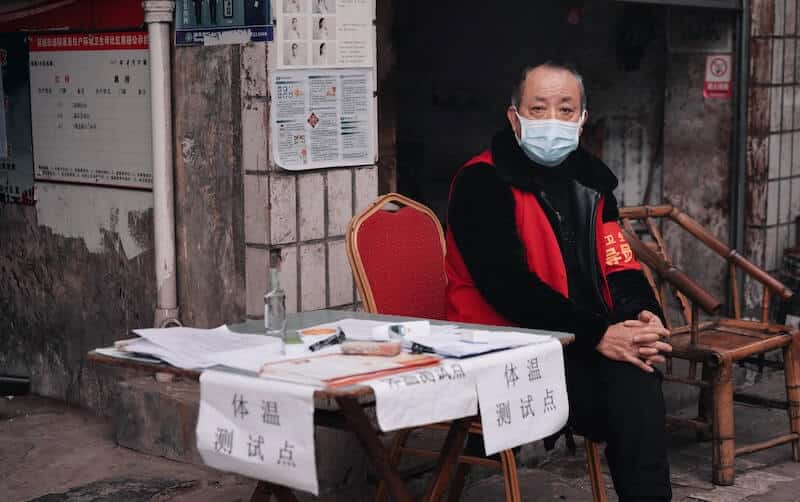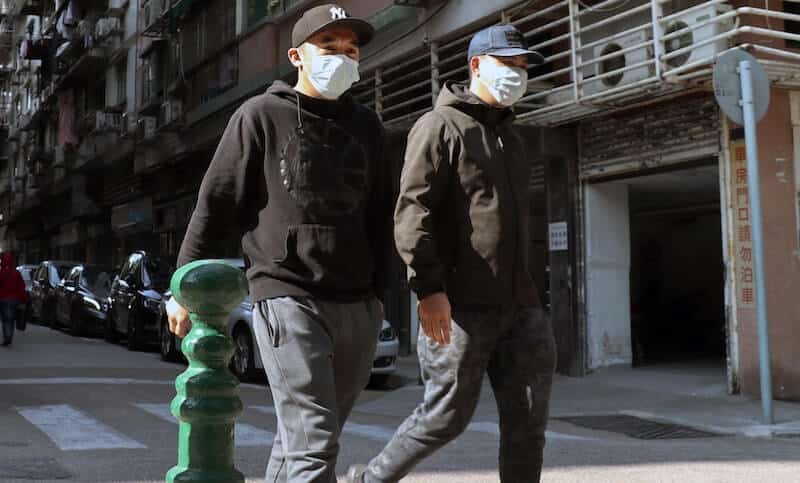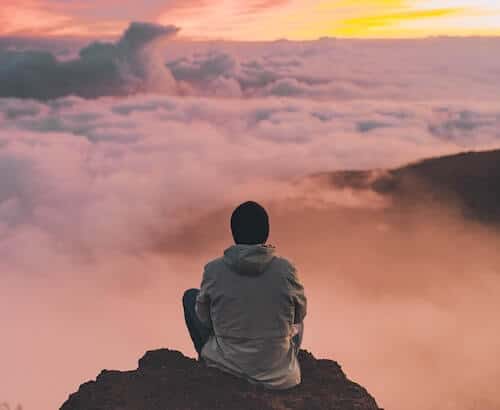Finding Peace Amidst a Global Scare
It is understandable that these unprecedented times are causing a rise in fear, worry, and anxiety. As our sense of uncertainty about the future grows, finding peace and our perception of control diminishes. It is not uncommon for this lack of control to leave us feeling unbalanced, ungrounded, and with heightened levels of stress circulating through mind and body.However, finding peace amidst our uncertainty is indeed possible. Through mindful awareness – and practice – we can equip ourselves with invaluable tools that will help us to manage the weight of the times. While we cannot gain control of the world around us, we can explore how to effectively navigate the one within – coronavirus or not.

Mixed Emotions and Reactions
First, it’s important to note that our reactions to the coronavirus can vary widely – and not only from person to person. Within our own experience, it’s possible for emotions to range from anger to confusion to relief – all within moments.Harvard University Health Sciences notes some of the varied reactions that can be experienced during this pandemic. Possible reactions include:
- Anxiety, worry, or panic
- Helplessness or confusion
- Difficulties focusing or sleeping
- Anger or grief
- Skepticism
- Hyper-vigilance
- Excitement, curiosity, or relief

There are many reasons our reactions vary from person to person and within our individual experience. Some of what dictates why we feel the way we feel includes:
- Early childhood conditioning
- Past traumatic experiences
- Exposure to certain media sources
- The beliefs, opinions, and sentiments of our social circle
- Pandemic exposure (i.e. being on the frontlines)
- Factors in our environment (i.e. lockdown state, loved ones being unwell, etc.)
- Underlying personal factors, such as mood, beliefs systems, and mental health
If we want to move deeper into mindful awareness of our pandemic experience, we can start by witnessing the factors that contribute to our reactions. This is not to strengthen or to deny how we feel; it’s simply to enhance our curiosity about why we are having the experience we are having. From there, we might dive further beneath the surface as we inch closer towards our underling peace.
Understanding Pandemic Fear
At its most fundamental level, pandemic fear is just like any other experience of fear. The body reacts the same way to coronavirus news as it does to anything else that we perceive to be a threat. It typically happens something like this:
- The mind perceives a threat, sparking conditioned beliefs to trigger a cascade of worried thought. The amygdala is engaged – a part of the brain that plays a role in emotional processing.
- The amygdala passes on the message to the hypothalamus – the brain’s command center. Through the autonomic nervous system, this activates the sympathetic nervous system, which causes the body to move into fight-or-flight mode.
- The adrenal glands release stress hormones, like adrenaline and cortisol, to help combat the threat. Heart rate, blood pressure, and breathing rate all increase.
- When the threat dissipates, the body slowly moves away from this mode of being. However, when the stressor is chronic, the sympathetic nervous system stays in overdrive. Both mental and physical wellbeing take a hit.

Understanding this response to fear reminds us of the importance of moving out of it where possible. While this response is certainly life-saving when we’re faced with imminent danger, it can lead to cardiovascular issues, weakened immunity, chronic fatigue, and mental health struggles when chronically switched on. Awareness of our own stress response is a first step in navigating it and finding peace.
How to Find Peace Amidst the Coronavirus
Finding peace amidst the coronavirus is not always easy; however, with an open heart, patience, and presence, we can begin to unveil it moment to moment. This journey into peace will look different for each of us as we all have unique challenges to face during this time. For those on the frontlines, finding peace might begin with a few mindful breaths during a bathroom break. For those with loved ones who are unwell, it might begin with witnessing and nurturing emotions like, grief, anger, and confusion.Whatever is the case for you, honour your own journey as you explore the mindfulness insights and practices that appeal to you in any given moment. Some small steps you might want to begin with include:
1. Mindful Breathing
One of the most direct and tangible tools we can use to find peace is the breath. Whether you have 30 seconds or 30 minutes, coming back to the breath will help direct your attention towards the peace of the present moment. There are a variety of specific breathing exercises we can explore, one of which is belly breathing. As we breathe into the full capacity of the stomach, we start to activate the body’s relaxation response. This helps us to find peace, release, and renewed focus to propel us forward with greater ease.

“Feelings come and go like clouds in a windy sky. Conscious breathing is my anchor.”
– Thich Nhat Hanh –
2. Compassion Practice
Coming back to the heart is crucial in these difficult times. Harnessing our inner capacity for love, kindness, and patience helps to remind us we are all in this together – and that we are all after the same thing. Compassion practice can be directed towards the self or to others – or towards both as is explored in metta meditation. A heartwarming and grounding practice, metta meditation helps to remind us of our shared humanity, a necessity in these trying times.
3. Body Awareness
Another wonderful grounding practice for times like these is a basic body scan or body awareness practice. Many of us experience the feeling of being ‘caught up in our heads’ – and so if that is the case for you, see how it feels to come back into the body through a simple scan. Resting on your back, close your eyes and take a few breaths to ground yourself. Then, scan your body from head to toe – slowly and mindfully. Where you observe any tension or tightness, see if you might gently relax that area. If the tension does not naturally release, send your loving thoughts that way to nourish this bodily contraction.

4. Mindfulness of Emotions
Getting to know our emotions – as it feels safe to do so – is another great way of becoming more balanced within our experience. Even when waves are moving through us, can we find peace and equanimity beneath the surface? We can enhance mindfulness of our emotions by turning towards our raw experience rather than denying it. Again, explore this where it feels safe to do so (in cases of heavy trauma, it might be best to stick with a compassion practice if you’re a beginner).As you turn towards the emotion, can you witness this flow as if you were an observer of them? Rather than noting ‘I am afraid,’ can you simply note the presence of fear? Notice where the emotion is present within the body, breathing love into that area as well. Ensure you are practicing patience and compassion as you explore this.
5. Reaching Out
Though the current coronavirus is inhibiting our ability to meet with loved ones face to face, reaching out is a simple practice that is needed now more than ever. Reaching out through phone or video call (or through email where more appropriate) can help both us and others to feel supported and connected. We can’t underestimate the power of compassionate conversation during times like these.
5 Mindfulness Exercises for Peace
In addition to self-guided mindfulness practice, you might use free online resources to help ground you into peace. Explore whichever exercises appeal to you as you compassionately and non-judgmentally begin to navigate this challenging time with greater care.

1. 10-Minute Body Scan
This body scan practice by Liam McClintock guides us through the body while also helping us to cultivate a mindset of equanimity. As Liam explains, “Equanimity is mental composure in the face of outside stimulus, whether positive, negative, or neutral.”

2. Guided Metta Meditation
A guided meditation to help us cultivate loving kindness, this recording by Gil Fronsdal is invaluable during these trying times. It invites us to wish ourselves and others well: ‘May you be happy, may you be safe, may you be healthy, may you be peaceful.’

3. Three Mindful Breaths
Led by Sean Fargo, this 7-minute meditation is a wonderful reset that guides us to tune into the breath with awareness. Well-suited for beginners or those who yearn for a mid-day reset, this practice can help to increase curiosity, presence, and peace.

4. Surrender Meditation
A soothing and supportive sleep practice, Jason Stephenson guides this 30-minute meditation to help us surrender control and transform fear into trust. If recent events have impeded your ability to rest well at night, this recording may be well-suited for you.

5. Devi Prayer – Peaceful Music
Lastly, sometimes what we need is music and mantra to help ease the restless, worried mind. This beautiful track repeats soft and soothing mantras alongside calming music to help ease both body and mind.
Finding peace is not something we do once and are finished with; finding peace is a moment to moment witnessing. Breath by breath, we are invited to reconnect with that underlying ocean of calm and equanimity. As you explore what exists beneath the surface of your experience, ensure that you are always practicing patience and self-kindness. Compassionately honour the fullness of your humanity as we – the entire human collective – navigate these trying times and move deeper into our innate peace.
How To Create Home Meditation Retreats
Wherever you are in the world, you are likely feeling the direct or ripple effects of the novel coronavirus. From border, school,
8 Mindfulness Exercises For Dealing with COVID-19
Three months into 2020 and it’s evident that this year will be one like no other. Across the globe, fears of the












